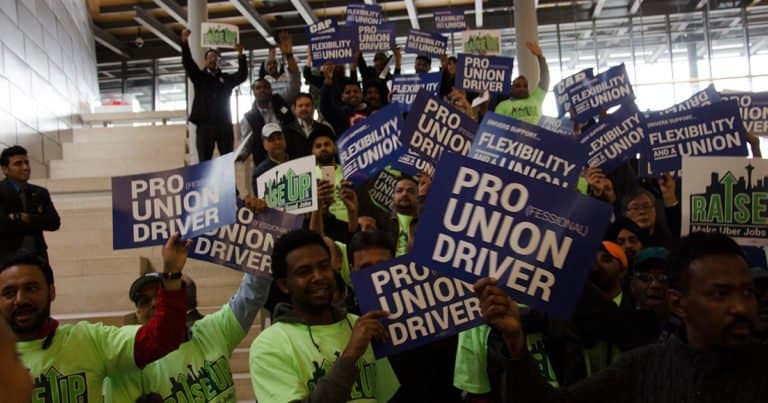This post is part of an ongoing of series on the fast food organizing movement. You can read all our Fast Food News here.
Bloomberg reports that McDonald’s is facing its worst U.S. sales slump since 2001, posting a 4.6 percent drop in U.S. same-store sales for November yesterday, with global sales down 2.2% according to BBC. This is McDonald’s 12th straight month without growth. Much of the blame was placed on the growth of fast-casual restaurants such as Chipotle, which offer consumers greater choice. In response, McDonald’s will expand its “Create Your Taste” program to 30 restaurants in coming months, with 2,000 restaurants testing the digital customization concept by the end of 2015.
Even as sales decline, the pay gap between the CEOs of fast-foot chains and the average fast food worker remains large, according to CBS. As of 2012, the CEOs of fast-food chains earned an average of more than 1,200 times what the average fast-food worker made, with CEOs earning, on average, $28.3 million last year. This gap is significantly greater than the already large pay gap seen within the general workforce, where the average, non-restaurant CEO earns 331 times more than the average worker.
As reported last week, workers in 190 cities rallied for an increase in the minimum wage to $15 an hour, but NPR reports that one Michigan fast-food chain has already heeded the call. Moo Cluck Moo, a small, two-year old burger chain has raised its workers wages from an already above-average $12 an hour to $15 and has seen an increase in productivity and limited turn over, which, according to the chain’s co-founder, has actually made the company profitable enough to expand further. The chain’s lowest cost burger starts at about $6, roughly $1.20 more than an average Big Mac. However, Michael Strain, an economist with the American Enterprise Institute, argues chains like Moo Cluck Moo are simply targeting a different customer than those who eat at McDonald’s and are enticed by the low-cost “Dollar Menu” options. According to Strain, if McDonald’s followed the path of Moo Cluck Moo, workers would simply be too expensive in comparison to the costs of their offerings, pushing the chain towards greater automation in the workforce.






Daily News & Commentary
Start your day with our roundup of the latest labor developments. See all
October 17
Third Circuit denies DOL's en banc rehearing request; Washington AG proposes legislation to protect immigrant workers; UAW files suit challenging government surveillance of non-citizen speech
October 16
NLRB seeks injunction of California’s law; Judge grants temporary restraining order stopping shutdown-related RIFs; and Governor Newsom vetoes an ILWU supported bill.
October 15
An interview with former NLRB chairman; Supreme Court denies cert in Southern California hotel case
October 14
Census Bureau layoffs, Amazon holiday hiring, and the final settlement in a meat producer wage-fixing lawsuit.
October 13
Texas hotel workers ratify a contract; Pope Leo visits labor leaders; Kaiser lays off over two hundred workers.
October 12
The Trump Administration fires thousands of federal workers; AFGE files a supplemental motion to pause the Administration’s mass firings; Democratic legislators harden their resolve during the government shutdown.